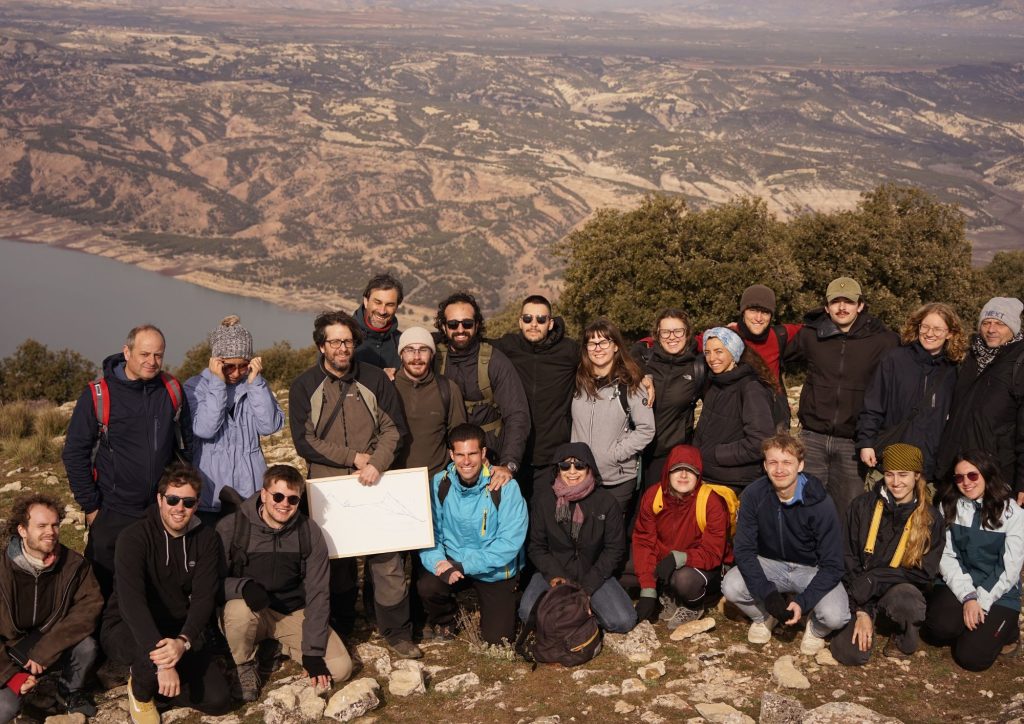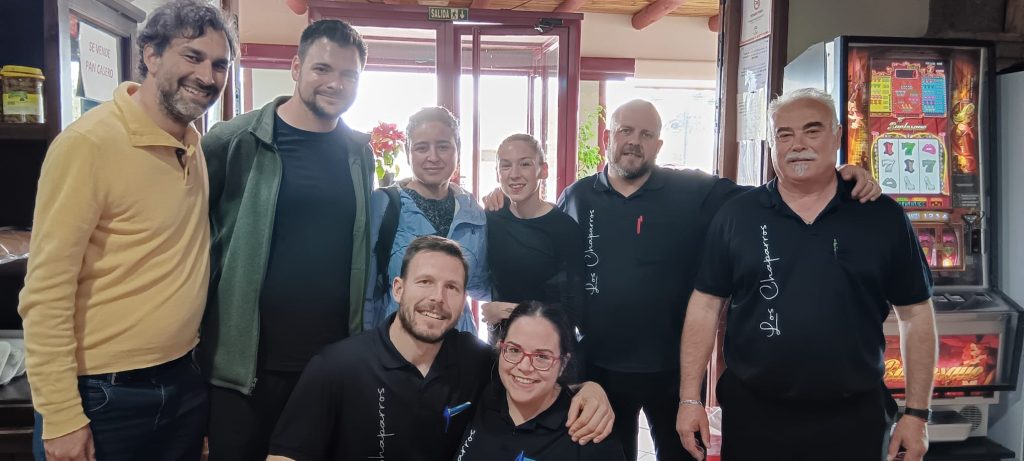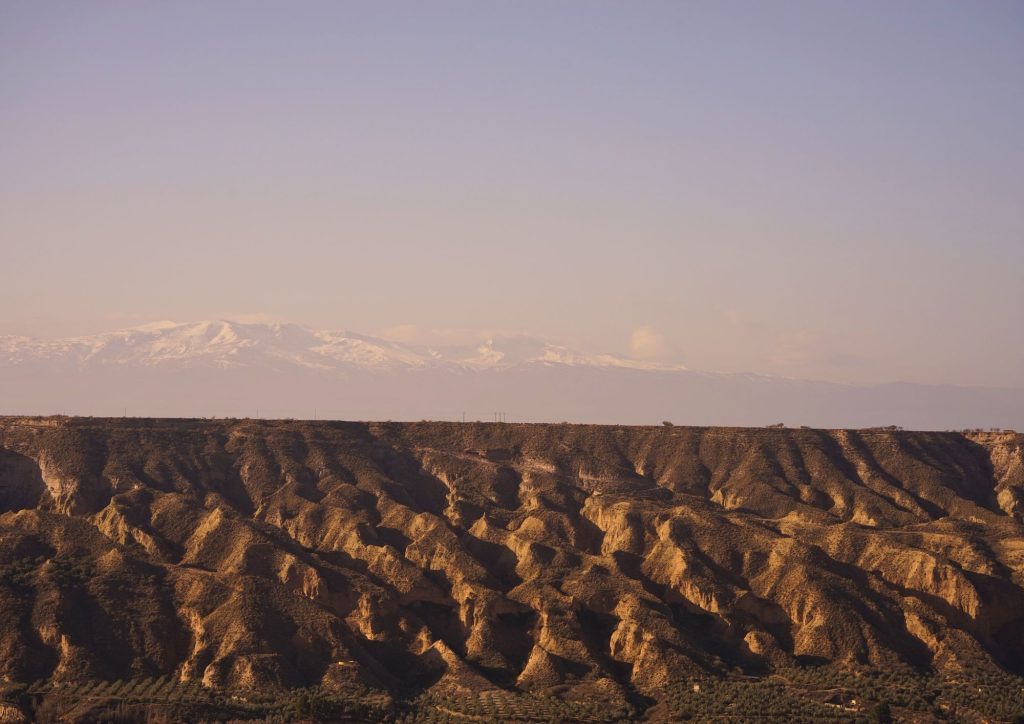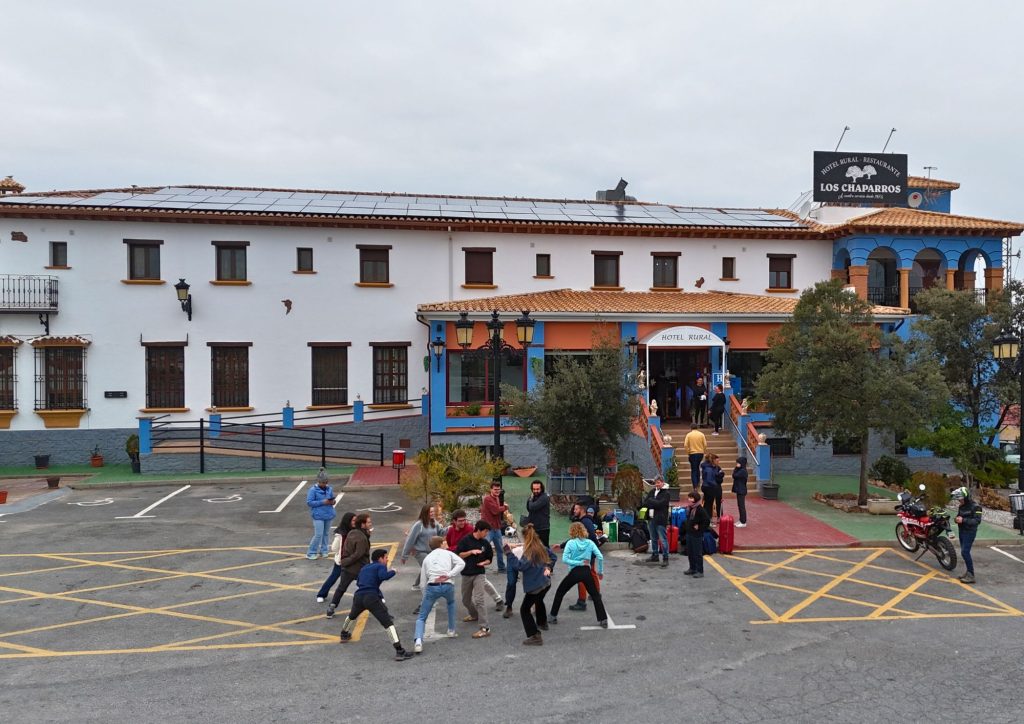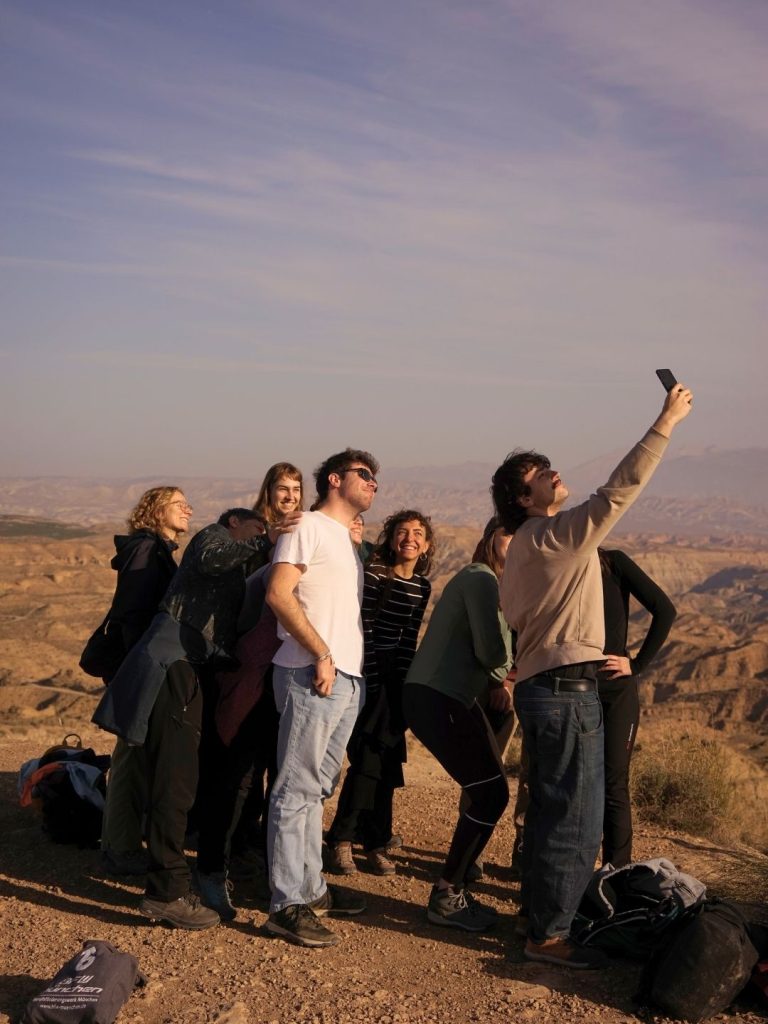When science meets adventure: Winter School at the Granada Geopark
|
26 Nov 2025In February 2025, 19 students from the Universities of Granada, Padua, and Leipzig participated in the first-ever Arqus Winter School at Granada Geopark. In this article, project manager Dr Djamil Al-Halbouni gives a personal insight into the organisation behind the event and his experiences on site.
The project was supported by the great networking opportunities offered by the Alliance and the Arqus Innovation Funds, small but well-targeted grants to enable students and teachers to carry out innovative projects at Arqus universities and to expand the international connections of students and lecturers.
As a relatively new junior professor in the field of geophysics and remote sensing at the Leipzig University, I seized the opportunity and applied for this initiative with the project “Erosion and Archaeological Geophysics in the Granada Geopark”. I was delighted when my application was accepted, knowing what fantastic opportunities there are for conducting geoscientific field research in Andalusia, surrounded by friendly people, a relaxed approach to challenges, good food and a vibrancy that is second to none.
Preparation during the semester
Since the course took place after the lecture and exam period, most of the preparation had to be done during an already very busy semester. My experience in organising many measurement campaigns and projects in Mediterranean countries helped me with this. So I had, how shall I put it, a certain “faith” that the motto “it will work out somehow” would hold here as well. Even though it didn’t look that way a week before. But anyway, the students and lecturers had booked their flights from three countries, so let’s go! My to-do list was quite full:
First, the arrival …
After a long journey, we arrived in Granada in our van, found a car park where we would be safe from the usual parking scrapes in Spain. At least, that’s what we thought. So there we were, ready to drive to the geopark. Ready to discover a region of dreamlike landscapes with mountains over 2000 m high, river gorges several hundred metres deep, the famous “badlands”, erosion structures, geological faults, the famous cave dwellings (trogloditas), lakes, almond blossoms as well as countless archaeological and palaeontological sites.
Led by José and his team, the hotel alone was an unforgettable experience with all the incredibly courteous and helpful people there. It was also a cultural highlight. In Spain, bars and cafés are full in the mornings and evenings, and this was no exception here, in the middle of nowhere. Workers from the area, farmers, travellers and many locals came for breakfast and created a very friendly and sociable atmosphere in this hotel.
… then the surprises
Just when we thought everything was going well and all the preparation had been worth it, the surprises began: after the introduction at the University of Granada, where all the students arrived on time (always a big question mark with large groups), it was time to pick up the rental cars. What a chaos! Our van got a dent in the very tight curve of the car park. Our convoy of hire cars regularly got lost in Granada’s traffic, where you have to keep going with the flow, no matter where you actually want to go. Last but not least, a bollard held up surprisingly well against our van as it drove into the university grounds – good workmanship! I straightened the bumper, the people in the café across the street laughed, and we continued on our way. In addition, pneumonia was going around among the students, resulting in several hospital visits in the town of Baza, 30 km away, and ultimately spreading to me as well.
Nevertheless, or perhaps precisely because of the unplanned surprises, the twists and turns, the wonderful weather and, above all, the people – the group had found its feet, the students used the breaks in the car parks for (analogue!) games and also spent time together in the evenings – the feedback afterwards showed me once again what an unforgettable experience it was for everyone involved. Hopefully, the beginning of a regular event! Thank you, Arqus.
The project was co-financed by the DAAD with funds from the Federal Ministry of Research, Technology and Space.
Author: Jun. Prof. Dr. Djamil Al-Halbouni
